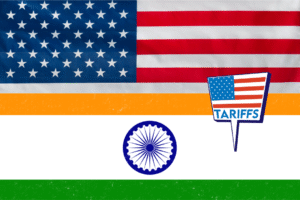The year 2025 has been a hurricane for worldwide economies, with expansion proceeding to challenge governments, businesses, and most vitally, regular individuals like you and me. From rising food costs to higher energy bills, inflation isn’t fair a bunch of financial language – it’s something you feel each time you go to the grocery store or pay your rent.
So, what precisely is happening with worldwide swelling in 2025? Why is it still an issue, and how is it affecting our day-to-day lives? Let’s break it down.
What is Inflation, Anyway?
Before plunging into the worldwide chaos, let’s get the nuts and bolts straight. Expansion basically implies a rise in the common cost level of merchandise and services. When swelling goes up, your cash buys less than it used to. That’s why your month-to-month budget feels tighter indeed if your compensation hasn’t changed.
Why Is Inflation Still Rising in 2025?
There are a few reasons why expansion is staying around like an undesirable visitor in 2025:
- Supply Chain Disruptions
While the world recuperated to some degree from COVID-19 and geopolitical pressures in the long term, worldwide supply chains are still unstable. Shipping delays, deficiencies of crude materials, and labor strikes lead to bottlenecks, making items more expensive.
- Continuous Geopolitical Conflicts
The war in Ukraine, insecurity in the Middle East, and exchange pressures between the U.S. and China all contribute to financial vulnerability. These occasions influence oil costs, import/export costs, and money stability – all of which stream down to shopper prices.
- Climate Change and Characteristic Disasters
Extreme climate events like dry seasons, surges, and fierce blazes have decreased agrarian yields and disturbed energy generation. This leads to spikes in nourishment and utility costs globally.
- Central Bank Decisions
In endeavors to cool expansion, central banks like the U.S. Federal Reserve and the European Central Bank have raised intrigued rates. Whereas this can moderate expansion, it also makes borrowing costlier, which influences contracts, car loans, and credit card payments.
How Expansion Is Influencing Ordinary Consumers

You don’t need to be a financial analyst to take note that things are more costly than they were a year ago. But swelling isn’t fair approximately numbers – it has exceptionally genuine impacts on your lifestyle.
- Basic supplies Are Eating Up More of Your Budget
Food costs are rising around the globe. In 2025, everything from eggs to bread to cooking oil costs more. Families with settled livelihoods are particularly struggling to keep up.
- Lease and Lodging Costs Proceed to Climb
In both urban and rural areas, rental costs have surged. Contract rates have shot up, making homeownership more troublesome for first-time buyers.
- Transportation and Fuel Are Depleting Wallets
Gas costs stay unstable, and open transport admissions have expanded in numerous nations due to rising operational costs.
- Utility Bills Are Warming Up
Electricity, gas, and water bills are all going up, and climate-related issues are making this more regrettable. Summer cooling and winter warming presently come with a heavier cost tag.
- Investment funds Are Losing Value
If your cash is sitting in a bank account, it’s losing its purchasing power. Swelling dissolves the value of cash investment funds, meaning you’ll need to save more to keep up the same standard of living.
Impact on Distinctive Wage Groups
Low-Income Families
These families spend a bigger portion of their salary on fundamentals like nourishment, rent, and utilities. Swelling hits them the hardest, frequently driving troublesome choices between paying bills and buying groceries.
Middle Class
The center course is getting pressed. Whereas their earnings might be steady, the rising fetched of living is draining their investment funds, venture capacity, and generally financial security.
High-Income Earners
Wealthier people feel the squeeze as well, but have more adaptability. They can alter ventures, diminish optional investing, or incur higher costs more easily.
Regional Breakdown: Swelling Hotspots in 2025
United States
The U.S. is seeing direct expansion after forceful rate climbs in 2023–2024. Be that as it may, lodging and healthcare remain major weight points.
Europe
Europe battles with energy costs due to diminished supply from Russia. Nourishment swelling is moreover a key concern.
Asia
Emerging economies like India and Indonesia confront swelling due to rising production costs and climate disturbances, whereas China encounters a deflationary drag from diminished demand.
Latin America and Africa
These districts are confronting double-digit expansion in numerous regions. Cash cheapening and political flimsiness exacerbate the problem.
What Can You Do to Battle Back?
Inflation may appear like a monster wave, but there are ways to ride it without being wiped out.
- Budget Like a Pro
Cut superfluous costs, track your investing, and prioritize needs over wants. Budgeting apps can offer assistance to help you remain in control.
- Reevaluate Enormous Purchases
Postpone buying non-essential things like extravagant hardware or a modern car until costs stabilize.
- Contribute Smartly
Putting cash in inflation-beating resources like genuine domain, stocks, or inflation-indexed bonds can offer assistance secure your wealth.
- See for Side Income
Freelancing, inaccessible gigs, or inactive salary sources can help you remain above water amid extreme times.
- Arrange Wherever You Can
From lease to membership administrations, don’t hesitate to inquire for way better rates or rebates.
Businesses Are Feeling the Heat Too
Small businesses, in particular, are facing expanded costs. Numerous are being constrained to raise costs, cut staff, or diminish item quality to survive. This, in turn, impacts buyers indeed more.
Is There a Conclusion in Sight?
Economists are cautiously optimistic that expansion will slowly ease by late 2025 or early 2026.
Stabilization of vitality markets
Geopolitical peace
Strong harvests and way better climate conditions
Balanced, intriguing rate policies
How Governments Are Responding
Monetary Policies
Central banks are proceeding intrigued rate alterations, in spite of the fact that they’re being more cautious to maintain a strategic distance from activating recessions.
Subsidies and Help Programs
Some governments have presented food or fuel appropriations, charge discounts, or cash help for lower-income groups.
Price Controls and Regulation
In nations like Argentina and Turkey, governments are utilizing cost solidifies and stricter control, in spite of the fact that these frequently have mixed results.
The Mental Toll of Inflation
It’s not fair to almost cash. Steady monetary weight influences mental wellbeing. Uneasiness, push, and dissatisfaction are common among individuals attempting to make ends meet. Expansion weariness is genuine – and it’s exhausting.
Digital Monetary Forms and Swelling Hedging
With swelling debilitating the value of fiat cash, many are turning to digital monetary standards like Bitcoin or stablecoins as alternative stores of value. Although not risk-free, crypto resources are becoming part of expansion methodologies in 2025.
Preparing for the Future: What Lies Ahead
To survive and flourish in an inflation-heavy world, being monetarily educated is your greatest weapon. Whether it’s broadening your salary, contributing shrewdly, or investing more astutely, information and versatility are key.
Conclusion
Global swelling in 2025 is more than a fair and financial feature – it’s a day-to-day challenge for millions. Whereas there’s no enchantment bullet, understanding the causes, impacts, and adapting methodologies can offer assistance you remain ahead of the curve. Swelling may be widespread, but your reaction is individual. So fix your belt, hone your budgeting aptitudes, and ride the storm with confidence.
FAQs
- Why is expansion still tall in 2025?
Because of waiting supply chain issues, geopolitical precariousness, climate disturbances, and central bank arrangements that haven’t taken effect yet.
- How does expansion influence my savings?
Inflation decreases the purchasing power of your cash, meaning your reserve funds can purchase less over time unless they’re winning returns that outpace inflation.
- What are the best ventures amid inflation?
Assets like genuine bequest, stocks, commodities, and inflation-indexed bonds ordinarily perform superior amid inflationary periods.
- Will expansion go down in 2026?
Experts foresee a slow decay if worldwide conditions stabilize, but unforeseen circumstances may delay that timeline.
- How can I secure my pay from inflation?
You can ensure your pay by expanding your sources, inquiring about compensation alterations, updating your skills, or beginning a side hustle



